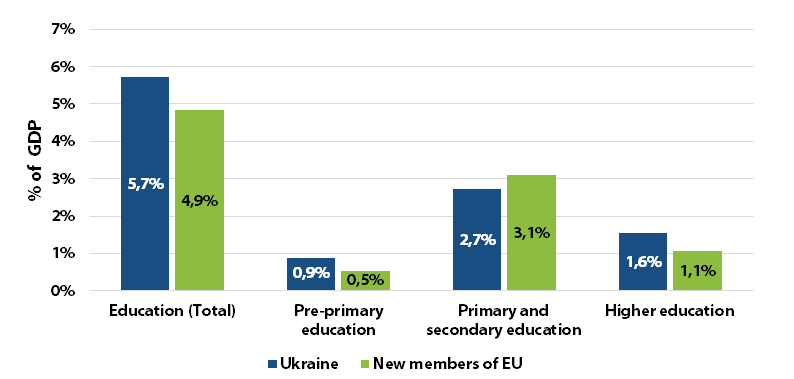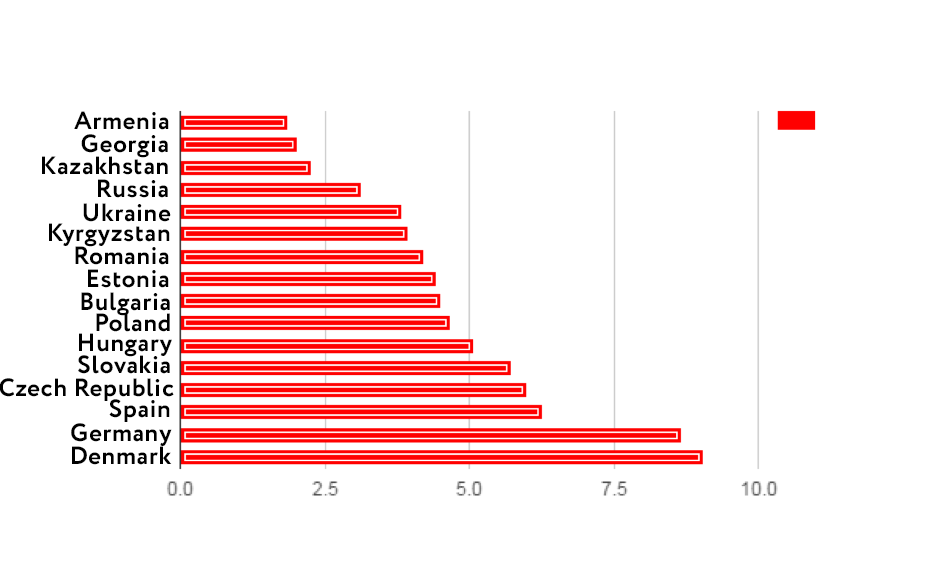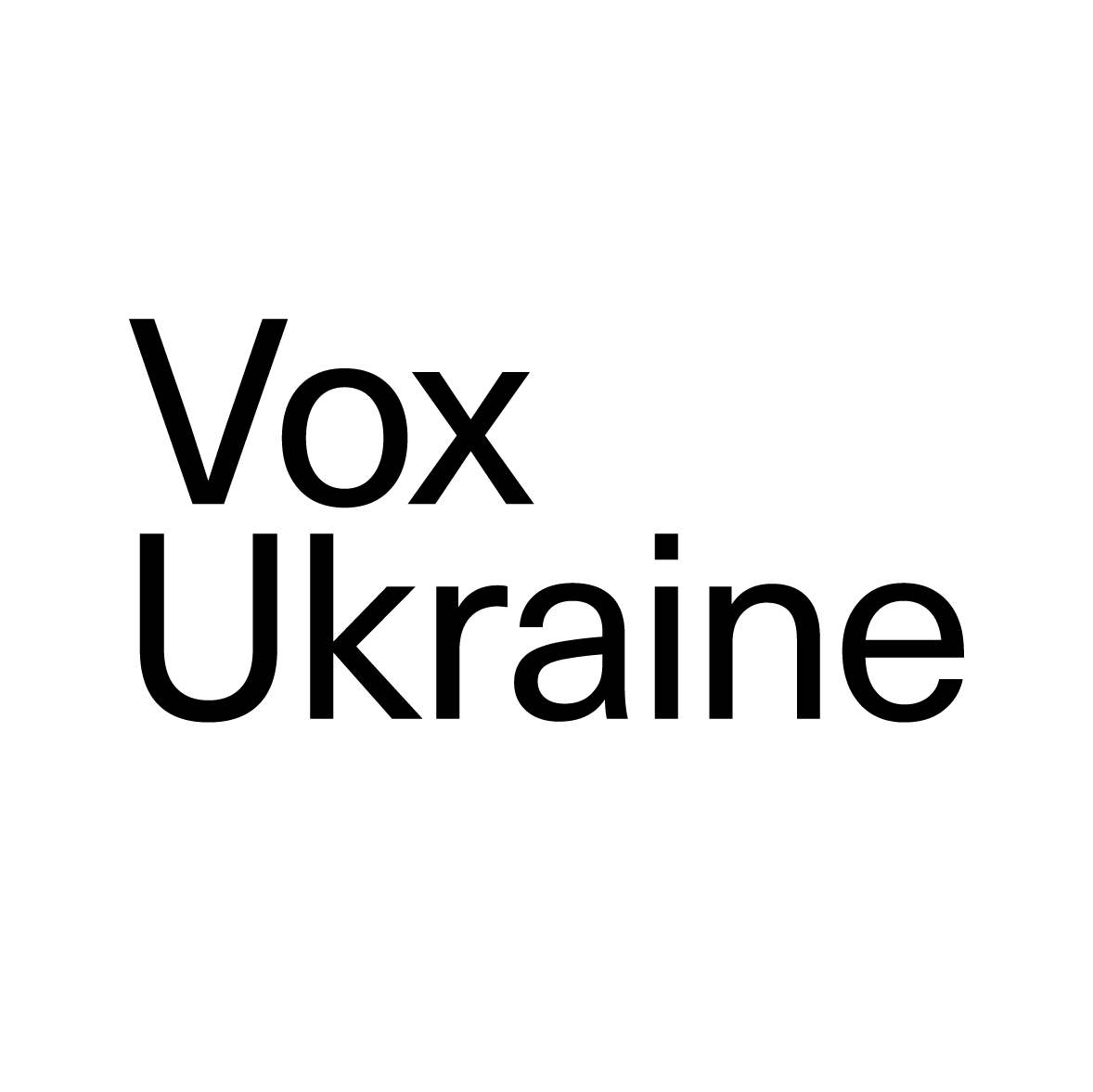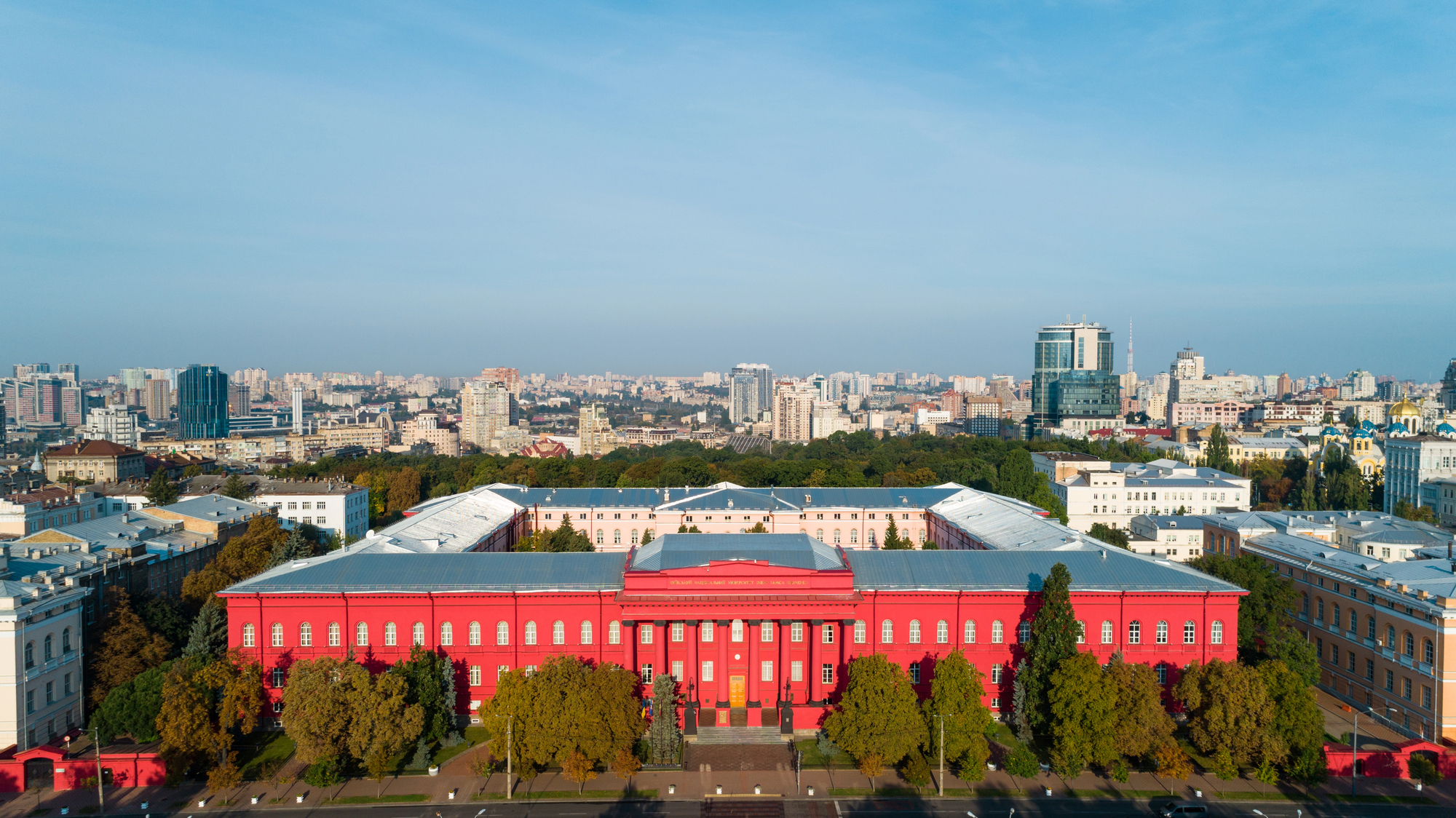Describing a chapter of the IMF memorandum, which concerns reforms in medicine and education, Lyashko distorts statements, written in the Memorandum.
In particular, he writes:
“The IMF-Ukraine draft memorandum sets Ukraine’s obligations: “… we will speed up fiscal structural reforms, in particular, through healthcare and education reforms to reduce the size of the public sector.” In other words, the authorities promise austerity measures in medicine and education! Rather than rebuilding and developing them effectively, they will save on them. In fact, those who added it to the Memorandum are real mankurts!”
Figure 1. Expenditure on education in Ukraine and countries ─ new members of the European Union, the latest available data (Ukraine – 2016 *),% of GDP

Source: World Bank, State Treasury of Ukraine
The authors raise two questions from fundamentally different dimensions, trying to link them.
- Optimisation of public spending on education and healthcare
- Skills that must be provided by the education system.
As for the first one, there’s certainly the need not to worsen, but preferably to improve the quality and availability of services provided by these sectors. When the authors refer to amount schedules of healthcare spending in different countries in dollars, they distort the perception of the situation, since they don’t take into account the size of the economies. It would be better to compare public spending as a percentage of GDP. According to this indicator, Ukraine is behind most EU countries, but ahead of several CIS countries (see the diagram below). If we take into account total spending (public + private estimated), Ukraine’s spending on healthcare as a share of GDP (7%) is higher than in a number of EU countries.
Figure 4. Public spending on healthcare as a percentage of GDP, 2013

Source: Database of the National Health Accounts of the WHO
Spending on education as % of GDP in Ukraine is higher (almost 6% of GDP) than average in the new EU member states.
The major problem with education and medicine is that Ukraine is a poor country, and can invest much less money (in absolute terms) into healthcare and education than more developed countries. But what’s even more important is that even small funds available are not spent in an efficient way because the country is “stuck in history”. Our medicine is largely based on the Soviet system of the 1930s, where the main problems were the fight against infectious diseases and preparing for reception of the wounded from a large-scale war. That’s why the number of hospital beds per 100 000 people in Ukraine is much higher than in the EU. Meanwhile, the main cause of death are cardiovascular diseases, prevention of which doesn’t need a lot of beds.
The situation in education is similar — decrease and aging of the population hasn’t led to a similar reduction in places in the middle or high schools. Therefore, just as in medicine, in education funds are spent on maintenance (heating, repairs, etc.) of a large number of outdated and unnecessary infrastructure rather than on things directly related to the quality of services — salaries of teachers and doctors, teaching supplies, or medical equipment, etc. Read more about optimisation of education here.
The second question — what, how, and when to teach, especially in primary and secondary schools, should be discussed with specialists — teachers and child psychologists. We are not experts in this field, that’s why we can only note is that it’s worth getting familiar with the best international practices. Today, Finland boasts the best primary and secondary education (for instance, according to PISA rating). There most classes are held outdoors and there’s no homework. Read more about the Finnish education system here and here.
The full article is available here
Attention
The authors do not work for, consult to, own shares in or receive funding from any company or organization that would benefit from this article, and have no relevant affiliations



